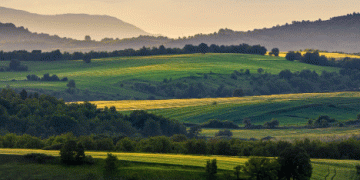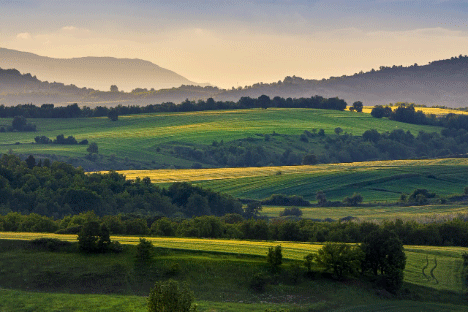As the world races to support a growing population projected to reach nine billion by 2050, agriculture remains at the forefront of global challenges. A new report from Belgium’s Catholic University of Leuven brings a thought-provoking perspective: can Europe’s push for organic farming truly achieve its sustainability goals without unintended consequences on a global scale?
In a candid interview with Vilt.be, agricultural experts Olivier Honnay, Wannes Keulemans, Gerard Govers, and Tessa Avermaete, who have been investigating agricultural sustainability for over a decade, shared insights from their latest work. Their findings reveal a critical dilemma: while organic farming offers clear environmental benefits per hectare, it may inadvertently drive greater environmental costs if viewed from a global perspective.
The Paradox of Organic and Intensive Agriculture
Organic agriculture generally has a lower environmental impact per unit area, which seems like an ideal solution to sustainability concerns. However, as Professor Wannes Keulemans explains, this approach requires significantly more land to achieve the same production levels as intensive farming. “If we look at the problem rationally, we see that intensive agriculture, which operates with higher yields per hectare, has its place in the agricultural landscape,” Keulemans said. By occupying less space for the same output, intensive systems reduce the pressure on natural habitats and contribute to global conservation efforts.
Gerard Govers, a geographer, adds another dimension: global food distribution. He highlights that while food scarcity is a pressing issue, the problem is not one of supply but of distribution. “We produce enough food globally; it’s just unevenly distributed,” Govers pointed out, indicating that productivity is essential to feeding the world’s growing population without clearing more land for agriculture.
Local Versus Global Environmental Impact
The experts agree that extensive, organic farming methods are suitable near nature reserves to minimize local environmental damage. However, Europe’s commitment to widespread organic practices may come at a cost: increased imports of agricultural products from regions with weaker environmental regulations, shifting the ecological burden outside Europe. This offshoring effect, as Govers warns, can have adverse consequences for global climate efforts.
For instance, reducing crop production in Europe could lead to deforestation and environmental degradation in regions like South America, where agricultural land expansion drives biodiversity loss. The report suggests a nuanced approach: using both organic and intensive farming where they are most appropriate. Near sensitive ecological areas, organic farming should prevail. Elsewhere, efficient and sustainable intensive farming can prevent the encroachment of agriculture on natural habitats.
The debate over the best path to agricultural sustainability is complex and multifaceted. Europe’s organic farming ambitions are admirable but must be carefully balanced against the need for high-yield, efficient agricultural practices to protect global ecosystems. The experts from Leuven emphasize that rational, evidence-based policies can ensure both local and global environmental benefits while supporting food security for a growing population.































